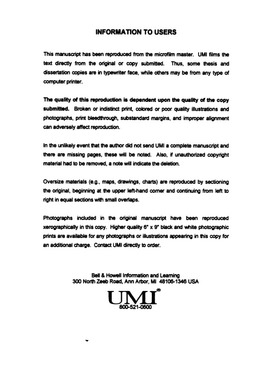| dc.contributor.advisor | Swoyer, Christopher, | en_US |
| dc.contributor.author | Ridenour, Randall L. | en_US |
| dc.date.accessioned | 2013-08-16T12:30:51Z | |
| dc.date.available | 2013-08-16T12:30:51Z | |
| dc.date.issued | 2000 | en_US |
| dc.identifier.uri | https://hdl.handle.net/11244/5930 | |
| dc.description.abstract | Knowing what is necessary or possible requires that one know the essences of natural kinds, which is the real goal of science. We can formulate hypotheses concerning kinds and their essences, and test them for their explanatory and predictive value. | en_US |
| dc.description.abstract | Essentialism is not anti-empirical as it is often portrayed. We do not begin with a concept of the essential, and force experience to fit our preconceptions. Instead, we begin with a hypothesis about what constitutes a kind, and study that kind to find the most likely candidates for its essential properties. As these hypotheses are tested and revised, we know increasingly more about the nature of things. As we come to know more about how things are, we come to know more about how they must be. Increased knowledge of such necessities, in turn, brings increased knowledge of possibilities. Essentialism, then, is not the stagnant doctrine that it is often portrayed to be, but the real window to the range of possibilities before us. | en_US |
| dc.description.abstract | As an alternative, I advocate a return to the Aristotelian notion of essence. Essences are the properties that comprise the real definitions of things. Every natural kind has an essence that is not simply a reflection of our interests, but is an objective feature of reality. These essences comprise the real natures of the members of the kind, and in turn determine what is necessary, impossible, or possible for a thing of that kind. | en_US |
| dc.description.abstract | This dissertation attempts to explain the ontological ground of modality, and the source of our knowledge of modal facts. The standard accounts of modal metaphysics, possible world theories, can explain neither the truth of modal concepts nor how we could come to know them. The concept of a possible world is as coherent as the concept of a set of all truths, and such sets are ultimately paradoxical. If no other account of modality can be given, then recent philosophical advances using modal concepts are simply apparent ones. | en_US |
| dc.format.extent | vi, 232 leaves ; | en_US |
| dc.subject | Philosophy. | en_US |
| dc.subject | Modality (Theory of knowledge) | en_US |
| dc.title | An essentialist theory of modality. | en_US |
| dc.type | Thesis | en_US |
| dc.thesis.degree | Ph.D. | en_US |
| dc.thesis.degreeDiscipline | Department of Philosophy | en_US |
| dc.note | Major Professor: Christopher Swoyer. | en_US |
| dc.note | Source: Dissertation Abstracts International, Volume: 61-02, Section: A, page: 0637. | en_US |
| ou.identifier | (UMI)AAI9962959 | en_US |
| ou.group | College of Arts and Sciences::Department of Philosophy | |
